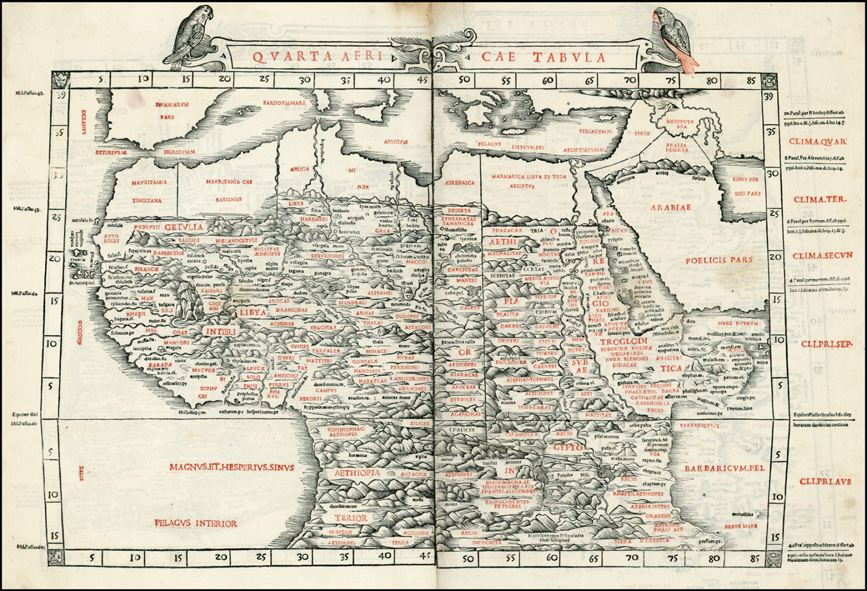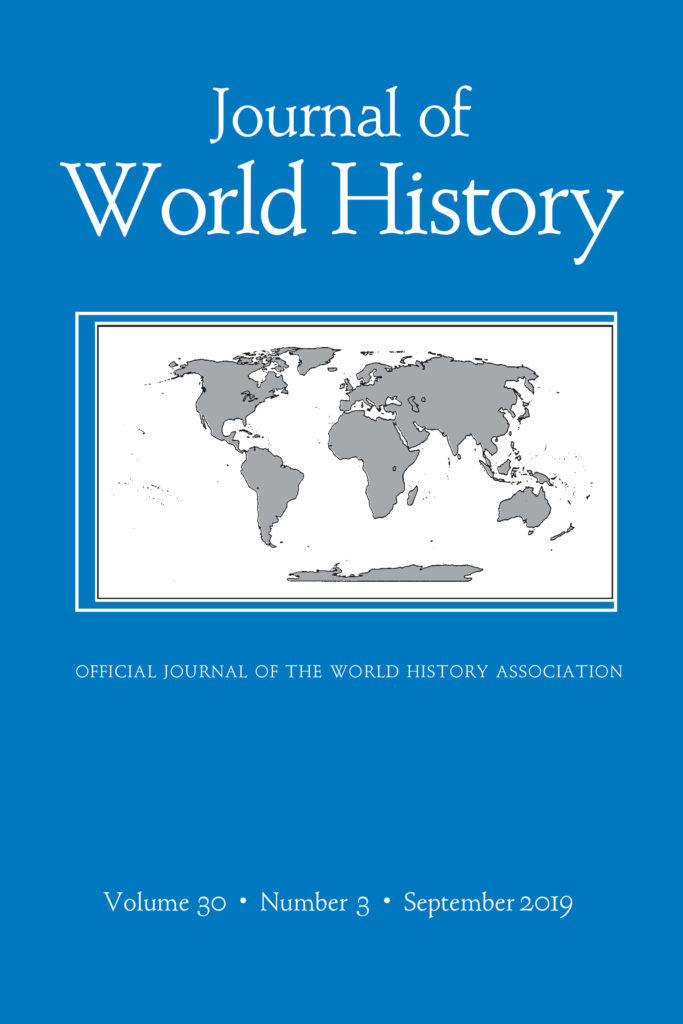
This issue of the Journal of World History includes the following scholarly articles:
The Globalisation of Franciscan Poverty
By Julia McClure
This article explores the Franciscans’ attempt to translate their local conception of poverty into a world order between the thirteenth and sixteenth centuries. Studies of Franciscan poverty have generally been confined to Europe and to the Middle Ages, yet the pursuit of poverty also shaped the Franciscans’ global interactions across the medieval and early modern periods. This focus provides an alternative perspective not only on the history of the Franciscan Order but also on global history, which has often been conceptualised as the European expansion of commodities, money and markets. Economic expansion was in dialogue with an overlooked story of resistance to, and questioning of, the phenomena of money and markets, and the attempt to realise a vision of the world based upon a unifying, yet unequal, notion of poverty.
The First Global Turn: Chinese Contributions of Enlightenment World History
By Alexander Statman
This article argues that certain Enlightenment approaches to world history developed through engagement with Chinese texts. In the eighteenth century, two French savants, Michel-Ange le Roux Deshauterayes and Joseph de Guignes, read original Chinese language histories and deployed them to ask and answer world-historical questions. Deshauterayes drew from the sixteenth-century historian Nan Xuan to argue that the mariner’s compass was invented in ancient China and diffused to the west. De Guignes looked to Ma Duanlin’s fourteenth-century encyclopedia to explain how the Huns came from Central Asia to threaten the Roman Empire. Their conclusions and their methods contributed to Enlightenment historiography through the works of philosophes such as Voltaire and Edward Gibbon. Enlightenment authors not only learned about China; they also learned from China.
Traveling Anthropophagy: The Depiction of Cannibalism in Modern Travel Writing, Sixteenth to Nineteenth Centuries
By José María Hernández Gutiérrez
Travel writing had a significant impact on the way cannibalism was to be interpreted and diffused from the sixteenth century onwards. By analyzing how much our current understanding of anthropophagy owes to the discourse of travel writing and the simultaneous interaction between concept and medium, a better understanding of its implications in philosophical, political and scientific discourse can be perceived. It also elaborates on how we built self-identification through the uses of fears and cultural stereotypes. A quick glance at the structure of travel writing helps conceptualize how the encounter with Native Americans by Christopher Columbus transformed the Western perceptions of cannibalism and determined relations with other peoples in the following centuries, from Polynesians to Africans. The repercussions of this dialectical process are still palpable today.
The War is Our War: Antifascism among Lebanese Leftist Intellectuals*
By Sana Tannoury-Karam
In the years preceding and during the Second World War, the Lebanese left founded and spearheaded a vibrant antifascist struggle in the Lebanese and wider Arab public sphere. Examining how Arab leftists organized against, debated, and rejected fascism and Nazism challenges the narrative of Arab cooperation with fascism. It also takes issue with viewing antifascism as simply reactive to fascism. Rather, this article shows that antifascists drew upon pre-war and interwar intellectual frameworks of nationalism and anticolonialism to create counterhegemonic discourses against fascism. It argues that those who opposed fascism were operating within a terrain of interconnected and overlapping structures of oppression that they saw facing their societies, specifically the nexus between colonialism and fascism, and their relation to Zionism. Lebanese antifascists built east-east networks of activism to create linkages between the Arab liberation struggle and other oppressed nations, thus converging their nationalist and internationalist projects.
Plus book reviews.





